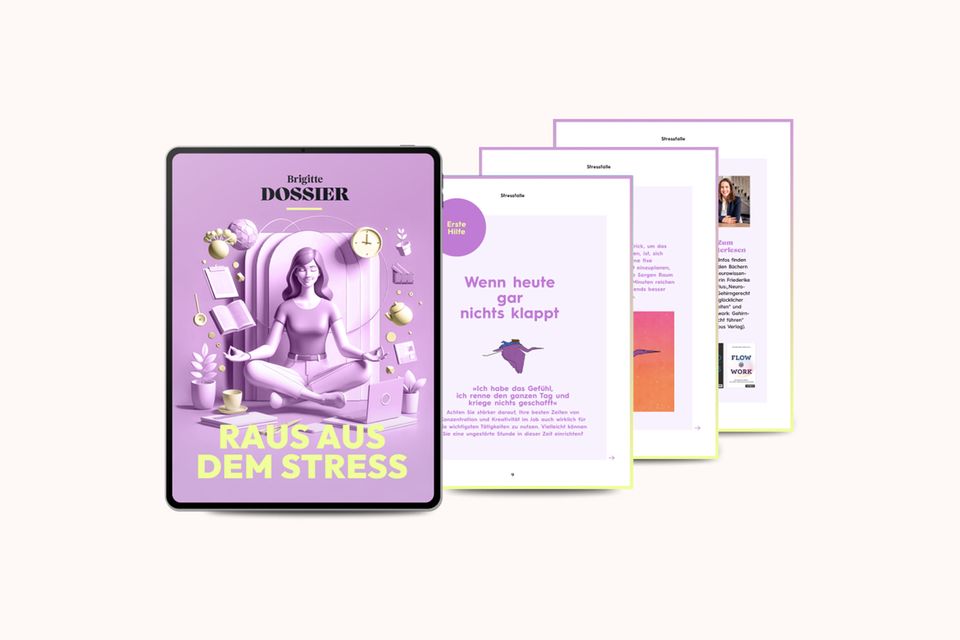Self-confidence: This is what happens when you no longer doubt yourself

Self-doubt can be exhausting and prevent us from living our lives to the fullest. What consequences would it have if we could simply stop doubting ourselves? Our author has pondered this.
Many people view self-doubt primarily as a problem. It slows us down, drains our mental capacity, and sometimes even reduces our productivity and quality of life. Women, in particular, are said to tend to doubt themselves more than is good for them. So, would it be better for us and our lives if we stopped doubting ourselves? We've tried it out in our heads.
4 things that happen when you stop doubting yourself 1. You feel more confidentFor most people, self-doubt is accompanied by insecurity. Instead of encouragement and encouraging thoughts like "I can do this" or "I'm confident I can do this," we question ourselves and our abilities with critical impulses like "I wonder if I can do this?" and slow ourselves down—both emotionally and in terms of our actions. If we could eliminate such self-doubting thoughts, we would eliminate a source of our insecurity, and we would become braver and more confident in ourselves.
2. You make more intuitive decisionsIn a narrower sense, we clearly associate doubt and skepticism with the rational part of our psyche. They involve thoughts, fears, questions, and analyses—everything we associate with concepts like intellect and reason, or which, neurologically speaking, can be traced back to activity in our frontal lobe. With this part, we usually dampen or balance the force and impact of our emotions; it also offers us the opportunity to recognize our unconscious reaction patterns and act contrary to them.
If our self-doubt were eliminated, in many situations nothing would stand between our emotions or our intuition and our behavior and decisions. We would follow our impulses without questioning them.
3. You lose influence over your self-developmentWhen our emotional impulses and intuition are unhindered in determining what we do and what we experience, our rational side has less influence on what we experience and learn, and who we are. For example, if we feel unfairly treated and are angry, we wouldn't question whether our anger is justified and our perception the only correct one. We would unleash it unchecked and receive a response – one that we had no conscious control over or choice of.

Are you looking for routines that help you unwind? Do you want to finally get a good night's sleep? Learn how to calmly handle stressful periods.
Without self-doubt, our intuition and our emotional and behavioral patterns would gradually change and deepen based on our experiences, without us ever questioning or consciously deciding what consequences we can and want to live with and what kind of person we want to be.
4. You lose awareness of your limitsOur self-doubt is often a conscious examination or negotiation of our limits and identity. We think about what we can dare to do, and question whether we consider something we have done or might do to be right or wrong. Sometimes we estimate our limits to be narrower than they actually are, sometimes wider, and we rarely come to a clear and conclusive judgment about what is right and what is wrong. But by thinking about it, we always strengthen our awareness of our limits and capacities, as well as our standards and values. Perhaps we could achieve this in some way through self-reflection that is free of doubt. But it would be one perspective poorer. And we would probably disappoint ourselves more often.
ConclusionIt can certainly happen that self-doubt becomes a problem for us. Especially when it gets out of hand and doesn't let go. When it isn't balanced with self-affirmation and trust in our own intuition and potential. Self-doubt can make us feel smaller than we are and prevent us from developing ourselves and seizing opportunities. But on the other hand, self-doubt protects us. It promotes a more comprehensive self-awareness and self-image, offers us the opportunity to make more considered decisions and influence our lives and our personalities.
Perhaps it's often not self-doubt itself that becomes problematic for us, but rather how we deal with it and the power and momentum we give it. In that case, rigorously rejecting self-doubt would certainly not be a sensible solution.
sus Brigitte
brigitte





